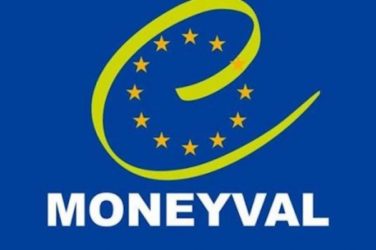For a world that wants to live in the today and tomorrow, it’s incredible how much yesterday matters. The belief that we can operate through a perpetual “fuite en avant” is constantly undermined by the need to track things down – and that means asking questions about the past. For professional historians and archeologists this is a life time job. Whenever “information hoards” are found, our view of the past can alter dramatically. At the same time, there may be major disagreements in the interpretation of the evidence which has been traced. Forensic scientists, lawyers and judges have always had the challenge. Financial auditors have needed to know where monies came from (as much as where they have gone). Those examining the work of financial auditors often go much further down the traceability path, and may challenge the original findings.
Tracing things back to sources has now become the core principle of just about every aspect of life. Think for a moment. A CV is a summary form of tracing professional and professional related activity. Is the record accurate? Are there omissions? Is it reliable? Does it reveal, or suggest, conflicts of interest (past and potential)? The issue is very much on the table in, for instance, the current vetting process by the European Parliament regarding proposed new EU Commissioners. Your medical record is a tracking document, which can attest to what you have gone through physically and psychologically. It gives a picture not only of the problems you have had, and of your capacity to cope, but also can act as a predictor of future problems. Simultaneously, it can be a valuable guide as a predictor of performance. If, say, an athlete produces feats much superior to what the traceability record indicates are normal, then suspicion that the athlete has used performance- boosting substances is bound to arise.
We want assurances about the food we eat – so tracing its origins, spelling out the substances in it, checking how long ago it was made, all become crucial. This too has been for years a core consideration in the negotiation of international economic arrangements affecting trade and investment. The suspicion that “standards might be allowed to fall” has been at the heart of objections to certain proposed deals. Wine and spirits fall into the same category: the when, the where and the what are vital to selling and buying. Art historians and even more art valuation experts are rightfully preoccupied about tracing paintings and sculptures back to their creators.
Sometimes the best efforts at traceability are not conclusive. In the famous recent case of the auction of the painting “Salvator Mundi”, attributed to Leonardo, the buyer paid a world record prize – despite the uncertainty concerning the true author! Disputes about traceability are frequently at the heart of economic transactions. Whether certain “chains of actions” can be proven or not affect the valuations given to articles.
More than the examples, though, the worthwhile thing is to ask ourselves what, exactly, we want from traceability, and why. The quick answer to the what is assurance, reassurance and insurance. Accurate traceability should offer guarantees and at least some measure of protection. A current example of preventive traceability is the discussion on tax evasion questions in devising the budget of the new Italian government. All political groups seem to place considerable weight on raising significant sums of money through effective measures to deter tax evasion (and to encourage compliance). One approach receiving much support is to oblige and/or enhance the use of digitalized payments methods. These have the distinct advantage over cash in that they are more readily traceable. Hence the government seems to be considering the offer of incentives for digitalized payment – if you pay digitally, you will receive refunds.
The why links to the what in two ways. Good guidance from traceability can help us avoid making decisions that we might afterwards regret. But if, after decisions have been made, the results do not match the expectations, then recourse to traceability might allow us to minimize the costs of mistakes and maybe even secure some compensation. When asking the questions, we must keep in mind that there will always be reasons why some individuals and institutions do not want traceability. The old expression “cover your tracks” is good advice for the criminal as well as for those who have made mistakes they would rather not recognize. In some cases cultural changes have actually made traceability largely irrelevant. For instance, efforts to eliminate many types of discrimination have rendered a number of what were formerly “traceability hurdles” illegal.
Traceability is a double edged sword. It slices open things about which we want to know, but can also makes cuts which reveal things that some people or institutions would rather hide. The world of espionage revolves around authenticity tests, of individuals and information. Effective tracing might require considerable scientific and technical knowledge as well as equipment. But equally well, knowledge of matters ranging from accents in a spoken language through to observing the way a person eats can be crucial. Technology can thus be a great help, yet personal skills can still be valuable. The world of accounting, and indeed of audit and certification in general (matters that go way beyond the purely financial), should require firms to check thoroughly the figures appearing in the accounts. However, it does this only to a limited degree. The ever increasing cases where major accounting firms have been found to perform badly have led to intense discussions about what an accounting firm should be required to know. Put differently: what are the costs and benefits of “truncated traceability?”
Traceability needs to be seen from several angles. For the individual, it offers advantages of several quite different kinds. One is identity and belonging – chemical and genetic testing opens the door to finding out who you are, where you come from, and who is (at least biologically) close to you. The recent instances in Europe alone where this has led to major court cases are too numerous to mention. A second is physical protection: knowledge of the ingredients of foods and medicines can help ensure both that your health does not suffer, and indeed can also help to improve it. Once more, legal processes revolving around whether the traceability information provided was accurate, deficient, or downright false, have been frequent. A third is privacy, especially of electronic information which you use to communicate personally and professionally. The scandals around the behavior of the world’s giants in this field appear to be the stuff of almost daily comment. A fourth is better personal and professional relations: reliable information about the people and institutions you may work with can help guide you in what to expect – “forewarned is forearmed”.
But there are also the sides to traceability which are a disadvantage if you are in the business of falsification or fraud of pretty much any kind. There is a constant tension between the inventive skills of criminals, who have to find new ways of circumventing existing control systems, and the capacity of the authorities to discover and implement more effective monitoring. Epochs, like the past couple of decades, where rapid technological progress and expansion of markets (through freer trade) go together, are ones which make the monitor/avoid struggle particularly acute. They generate plenty of new businesses, both licit and illicit, and the one feeds on the other. Such periods also are an invitation to huge increases in laws and regulations, designed to provide a framework for enhanced traceability. The practical impacts of these rules, however, depend on the capacity to implement and the intelligence with which the rules have been designed.
Numerous cases within the present decade alone suggest that, in fields ranging from the drug trade, financial transactions, military conflict and even the awards of university degrees, the implementation capability is generally not in harmony with the requirements set out in the laws. This not only means that “enforced traceability” is falling in relation to the specified requirements, but also that people develop a disregard for the laws. This is a dangerous slope to be on.
Institutions likewise see traceability as a means of advantage but also with its downsides. The massive growth in outsourcing of almost all aspects of business today has brought major savings but also clear risks. The issue is: has responsibility been outsourced? As companies in every kind of activity operate with international value chains, so the part of the work which they themselves do is an ever smaller share of the total. But the product or service is still associated with the final seller, the entity which holds the brand name. Hence it becomes crucial for the group which is directing the value chain to be able to trace every link in it and know who has carried out that part of the work. Without that, corporate social responsibility is meaningless. The business of assuring responsible work along the value chain is itself a major activity.
The frameworks, and still more the specific contracts, designed to “enforce responsibility” are by and large reliant on the law (in various jurisdictions) being enforced quickly, at reasonable cost, and without bias. That assumption is, in most cases, not a fair reflection of practice. Companies therefore seek other means of obtaining the responsibility assurance, usually by a mix of carrots and sticks. Aware of the complications, governments and other law making authorities are trying to find smarter ways of designing their laws and rules. Clever design can lead to far higher rates of implementation and thus lower costs of implementation. Experimentation in the law has become much more than a cottage industry – and the reason is the cost, financially and socially, of implementing traceability.





